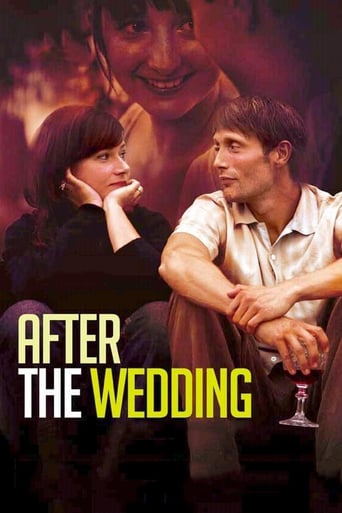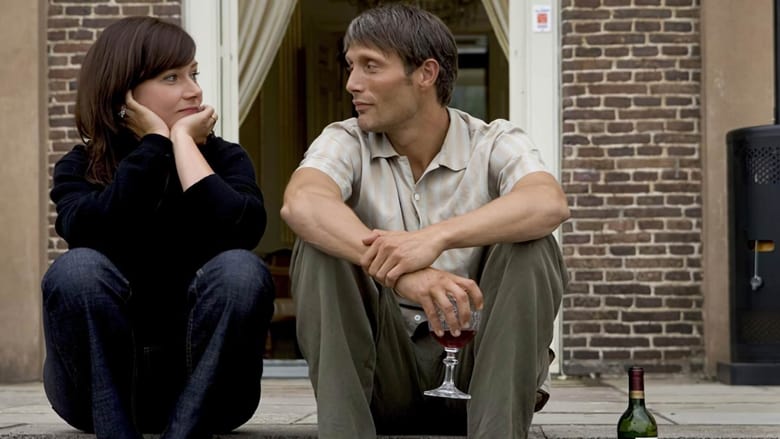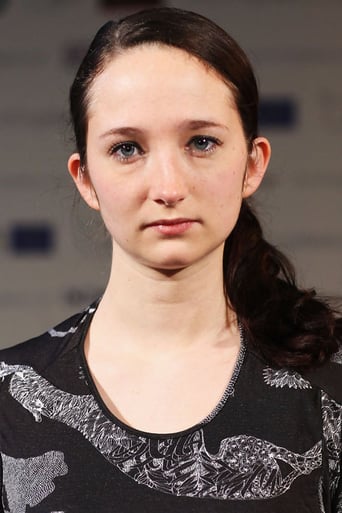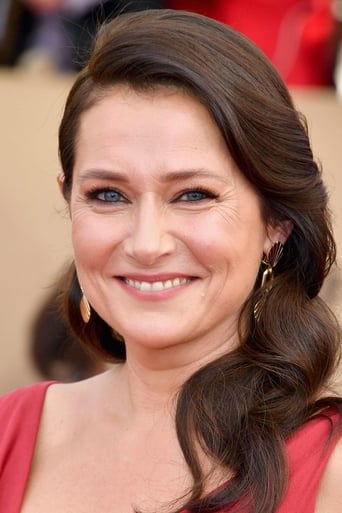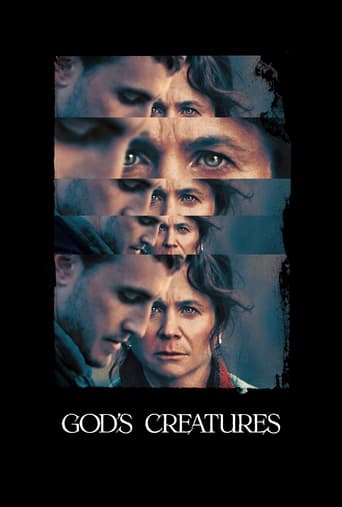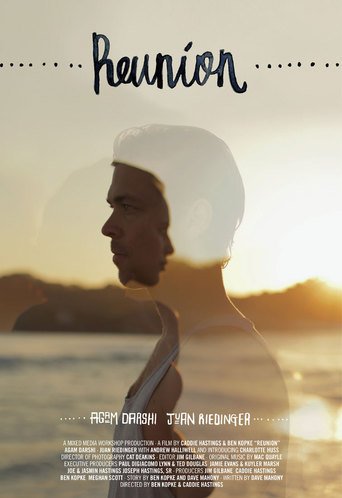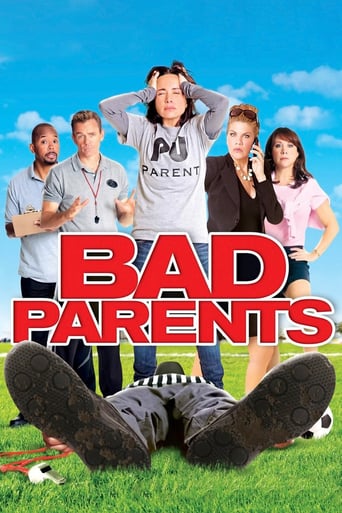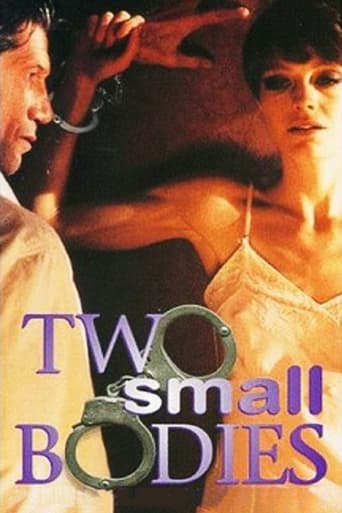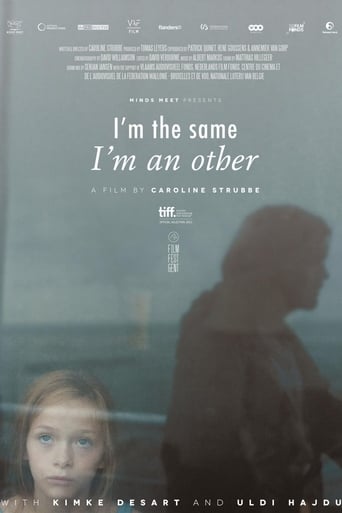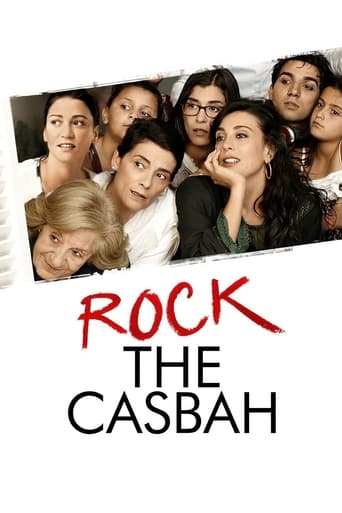After the Wedding (2006)
A manager of an orphanage in India is sent to Copenhagen, Denmark, where he discovers a life-altering family secret.
Watch Trailer
Cast


Similar titles
Reviews
Good story, Not enough for a whole film
Excellent, Without a doubt!!
Not sure how, but this is easily one of the best movies all summer. Multiple levels of funny, never takes itself seriously, super colorful, and creative.
Strong acting helps the film overcome an uncertain premise and create characters that hold our attention absolutely.
The story is somehow good and humanitarian and all that, but the plot and dialogue are very motionless, boring, dull and superficial.
8/10Why would a millionaire craft a careful plan to sabotage his family and help the guy whom he should envy the most? The film began itself by posing such a puzzling question then spending its latter half to explain it. The answer may be predictable, but it makes you care, and that is important. A lot of film promises a shocking revelation, but rarely delivers. Most of them merely force either a banal conspiracy or a twist for the sake of twisting down your throat. Efter brylluppet, on the other hand, give me a predictable revelation that somehow makes me care even more. The cast is extraordinary. The most noteworthy is definitely Stine Fischer Christensen, who is now one of my favourite actresses of all time. The ability to portray vary array of emotion is a requirement for any good actress but Christensen took it further in Efter brylluppet where she demonstrated the ability to look with both the most believable loving eyes, and the heartbreaking sorrowful one. Unfortunately, I can't bring myself to agree with the director Susanne Bier and the cinematographer Morten Soborg. Yes, hand-held camera and such has its power and it is a nice parody with the script but certain scenes, I believe, would improve greatly if they were filmed by a proper camera. I know that the so-called naturalistic is the signature of Danish film but those scenes were less naturalistic because it broke the fourth wall and forcefully reminded me that this is a film. I would give Efter brylluppet 9 out of 10 if it wasn't for such cinematography.
The Danish film, After the Wedding, directed by Susanne Bier is beautifully formulated to make you cry, laugh, think, and cringe. This film includes several multifaceted characters that constantly keep you guessing as to who they are as a person. Jacob, the main character, lives in India and works for an orphanage, he travels to Denmark to meet with a millionaire, Jørgen, in hopes of getting a loan to keep the orphanage from shutting down. Jørgen is married to Helene whom has three children, two younger boy twins and a daughter whom we assume is in her early twenties. The daughter, Anna, gets married to Christian early on in the film. After the wedding, as one can presume from the title, everything in this family dynamic changes and secrets from the past begin to unfold. The audience soon finds out that Jacob is Anna's father and Helene's past lover. The rest of this drama filled film deals with the themes of family relationships and morality, while the director Bier implements extreme-close ups in order to expose the characters raw emotions. The director of this film, Susanne Bier, is known for her somewhat obsessive interest in family relationships. After the Wedding, seemingly deals with every kind of family relationship one can think up, even those that are not related by blood. Relationships between parents and their children stand out at the most important and loving aspect of this film. During the first ten minutes of this film both Jacob and Jørgen are introduced by showing their love toward children. Jacob has somewhat adopted an Indian child, Pramod, who he raised since he was a week old, when Jacob must leave Pramod for Denmark you can see the love in his heart for the child. Jørgen is first introduced as he reads a children's book to his twin boys and impersonates the voice of a duck. It is clear from the beginning that both of these men would do anything to help these children and that is why this film is so special and heart wrenching. At Anna's wedding it is announced in her speech that Jørgen is not her biological father, but that still loves him just as much. This idea of being a parent to someone who is not your biological child comes up in this movie from both Jacob and Jargons point of view. Other types of relationships are also portrayed however, such as struggling marriages, indefinitely, death and jealousy. Through all of these intermingled relationships a sense of maturity and calmness resonates over a majority of the characters. Jørgen is secretly dealing with his impending death, but other characters such as Jacob, Anna and Helene all figure out how to work with the situation they are dealt with while exuding love as much as they possibly can. In some ways this film is a lesson to all about how to deal with adverse situations. The morality of this film struck me due to the fact that this film lent no easy choices or happy endings. Constantly the characters had to deal with situations regarding right and wrong. Jacob, who loved India, had to make the decision of weather to save the children of the orphanage that he loves, or to live in Denmark, which he despised. Jørgen had to make the decision to help the orphan children financially and how to protect his family after he has passed away. Anna had to decide weather or not to accept her new father into her life. Helene had to deal with the implications of telling her daughter about Jacob, and also weather or not to tell Anna about Jargons illness. It always seemed that one of these characters was going to be morally corrupt and end up disappointing the audience. But I never felt that way, which surprised me because in the end I sympathized with ever character, apart from the cheating groom Christian. Jacob kept asking Jørgen, "Why are you doing this?", "What do you get out of this?", "What is in this for you?". Although the audience did not find out until the end of the film that Jørgen was going to die and that he wanted Jacob in Denmark to take care of his family, he also donated over 12 million dollars to the orphanage. You could sense that Jørgen was a good person; he was just dealing with dark burdens inside that made him seem insincere. Was it wrong for him to donate the money out of selfish reward? Maybe, however all parties involved benefited and some hope remained for the grieving Danish family and the impoverished Indian orphans. That is always Susanne Biers goal, to implement very intense story lines that deal with many uncomfortable situations, but in the end leaving the audience with hope for the future. Some believe that all of ones emotions can be seen through their eyes. After the Wedding in every single scene includes an extreme close-up of characters eyes at pivotal emotional times. Whether it is that a character is tearing up, concerned, happy, or confused, the close-up camera shots are able to force the audience to feel their emotions. An example that includes all of the main characters is when Anna is making her emotional wedding speech; a close-up of her eyes shows her love towards her parents, as Jargons eyes are beaming at the kind words. Jacobs's eyes are in panic as he figures out that Anna is his child, while Helene's eyes show sorrow, as she knows that everything from that moment on would change. Even the foreshadowing of Jørgen's death includes the dead fox and deer eyes. This technique, following Bier's interest in Dogme 95, is instrumental in depicting the characters raw emotions as opposed to relying on background special effects. This excellent film will make you think hard about life, as it is universally relatable.
Jacob works in an orphanage in India that rescues child prostitutes and street children. But the ministry is failing financially, and in desperate need of funds. The answer appears when Jorgen Hansson, a rich Danish industrialist offers to fully fund the orphanage. But Jorgen stipulates that Jacob must fly back to Denmark personally to meet Jorgen and close the deal. At first Jacob refuses because he is reluctant to leave the children, especially Pramod, a boy he has raised from infancy and who looks to Jacob as his father.But the need is so great and Jorgen is adamant, so Jacob finally acquiesces and flies to Denmark.Once he arrives, Jorgen begins a strange game of manipulation. He requires Jacob to attend his daughter's wedding before finalizing the deal. At the wedding, Jacob realizes that Jorgen's wife is actually is long-lost love, Helene, and that he is the father of her daughter, Anna, who is getting married.Jacob is furious and confused. Once Anna finds out the Jacob is her biological father, she insists on meeting him and the two form a close bond.After further mysterious machinations by Jorgen involving Jacob, Helene, and Anna, Jorgen finally sits down with Jacob to finalize the deal to fund the orphanage. But rather than the original one million dollar offer, Jorgen wants to set up a 12 million dollar joint trust fund to be controlled solely by Jacob and Anna, with the stipulation that Jacob must reside in Denmark rather than India.Jacob is once again furious and storms out of the meeting. Jorgen runs after him and confesses that he has been wrong to be so manipulative and stubborn. Jorgen reveals that he is terminally ill, and that he wants Jacob to take his place as head of his family after his death. Stunned, Jacob simply walks away, unable to absorb so much crucial information at once.When Anna's new husband, Christian, is surprised by Anna's coming home and finding him having sex with his former girlfriend in her own bed, Anna seeks refuge with Jacob, and he realizes that he must indeed stay in Denmark to care for his daughter, Helene, and Jorgen's two twin boys after Jorgen dies.In the final scene, Jacob returns to India and the orphanage to visit Pramod and offer to take him back to Denmark to live. But Pramod does not want to leave the now prosperous, remodeled orphanage and all his childhood friends. Jacob realizes that Pramod is right, and very wise for his young age. They embrace, and Pramod returns to the new football field to play with his friends.This is a film that will warm your heart, amaze you, and lift your spirit with joy!

